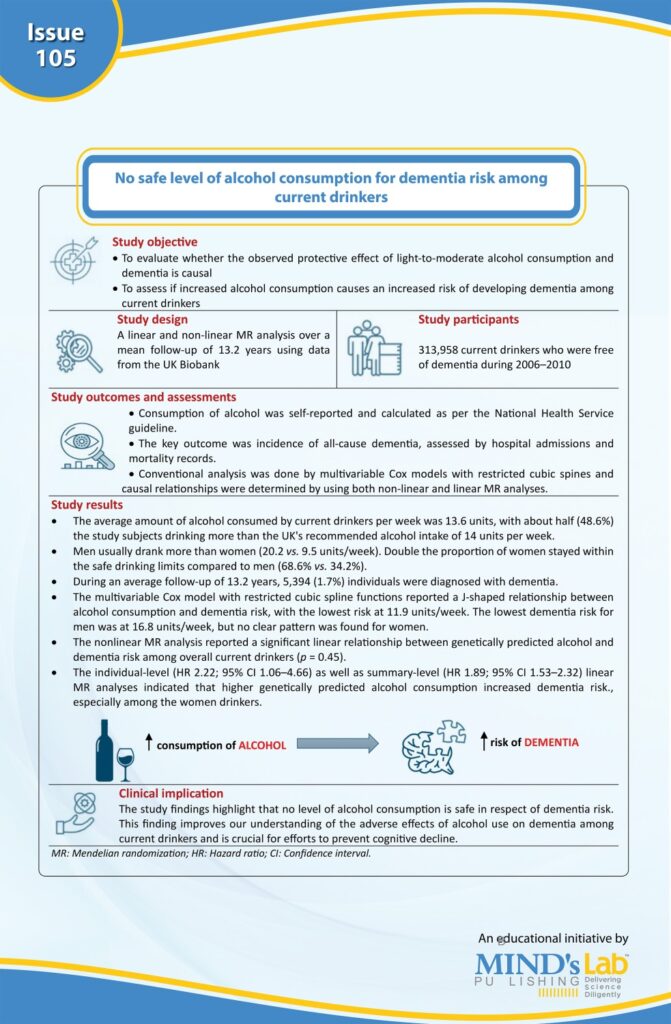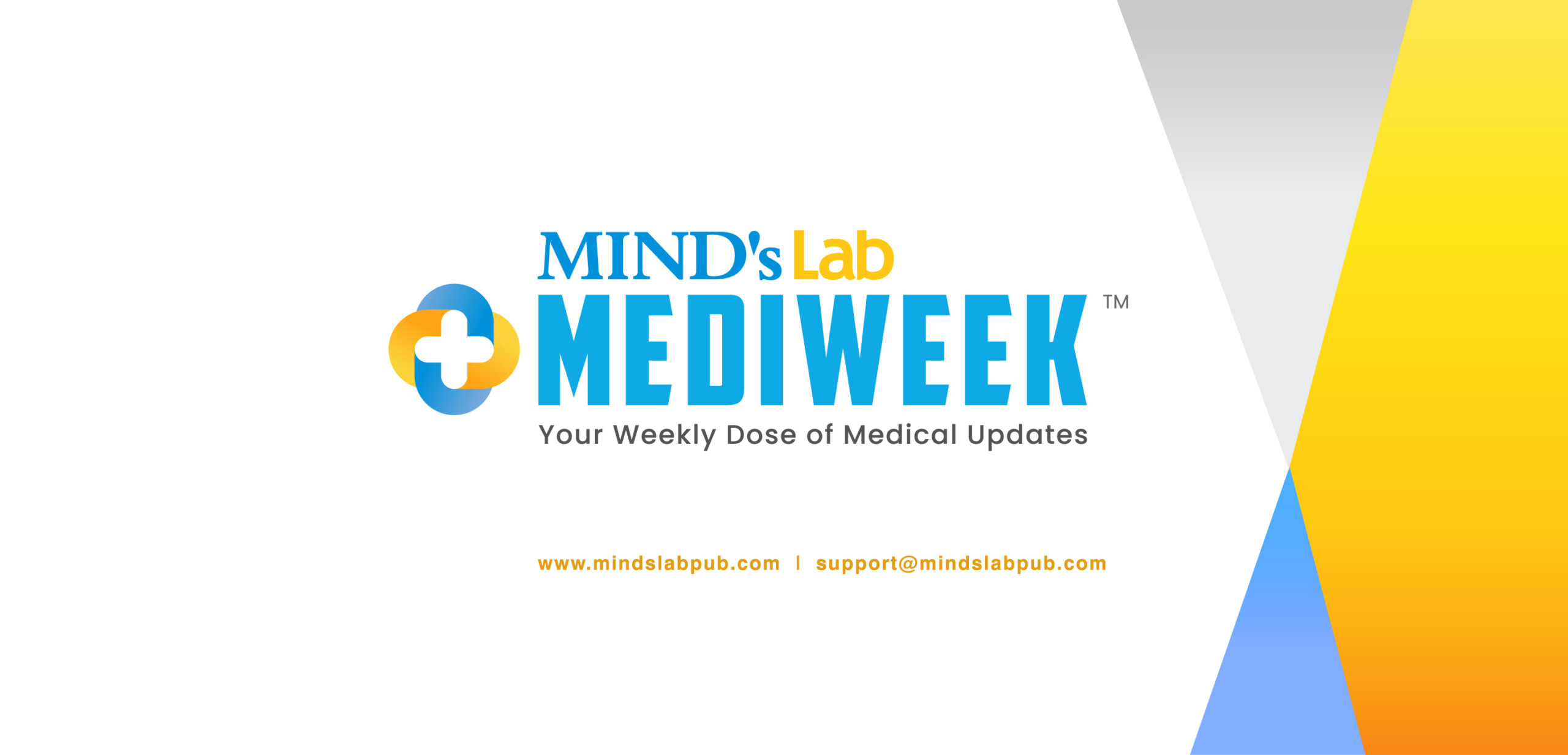
Heavy drinking is a known risk factor for dementia; however, the effects of consuming light-to-moderate levels of alcohol are still debated. A J-shaped relationship has been reported in epidemiological studies between alcohol consumption and dementia – with a protective effect at a lower level of consumption, and an increased risk above a certain threshold. However, the protective effect of light-to-moderate drinking may be flawed due to the effect of confounding factors. Previous studies have used genetic data to mimic a randomized trial and reduce bias, but these studies assumed a linear relationship. There is lack of clarity whether light-to-moderate alcohol consumption has a causal impact on dementia risk.
A recent study by Zheng et al., published in the journal “eClinicalMedicine”, assessed whether raising alcohol consumption causes the risk of developing dementia to increase among current drinkers. A linear relationship between alcohol consumption and the likelihood of developing dementia was reported, with current drinkers facing higher dementia risk as alcohol intake increased. This contrasted with conventional epidemiology, which often showed a J-shaped relationship, suggesting moderate drinking can have protective effects. This challenges previous knowledge and suggests that no amount of alcohol is safe when it comes to dementia prevention (see Graphic).

(Source: Zheng L, Liao W, Luo S, Li B, Liu D, Yun Q, Zhao Z, Zhao J, Rong J, Gong Z, Sha F, Tang J. Association between alcohol consumption and incidence of dementia in current drinkers: Linear and non-linear mendelian randomization analysis. EClinicalMedicine. 2024;76:102810. Doi: 10.1016/j.eclinm.2024.102810)
